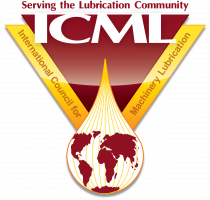 Basic To Most Advanced
Basic To Most Advanced
We offer the option to get certified through the International Council for Machinery Lubrication (ICML).
ICML is an independent body offering skill certification testing for individuals in the fields of machine condition monitoring, lubrication and oil analysis. Certificates issued by it are internationally recognised.
Why Certify
There’s something about the word “certified” when it precedes a professional title that conveys to employers and consumers a sense of trust, credibility, knowledge and an official “stamp” of approval. Employers often include certification as a prerequisite when seeking qualified candidates to fill positions; consumers often trust only those professionals who boast credentials proving they have attained a certain level of knowledge. It is an assurance of a certain benchmark level of knowledge and skill that can be expected of a professional. Lubrication professionals themselves realize numerous benefits by holding a recognised certification, including higher salaries, better jobs, enhanced skill sets, market differentiation and community support from like-minded peers.
Certification Requirements
| ICML Certifications | |||||
|---|---|---|---|---|---|
|
Level I Machine Lubricant Technician (MLT I) |
Level II Machine Lubricant Technician (MLT II) |
Level I Machine Lubricant Analyst (MLA I) |
Level II Machine Lubricant Analyst (MLA II) |
Machinery Lubrication Engineer (MLE) |
|
|
Which fields? |
Machinery lubrication, engineering, mechanical maintenance and/or maintenance trades |
Machinery lubrication, engineering, mechanical maintenance and/or maintenance trades |
Lubricant-analysis-based machinery condition monitoring |
Lubricant-analysis-based machinery condition monitoring |
Machinery Lubrication Engineer |
|
Required Experience |
2 years |
3 years |
1 year |
2 years |
5 years’ education (post-secondary) or on-the-job training in one or more of the following fields: engineering, mechanical maintenance, maintenance lubrication, oil analysis and/or condition monitoring (mechanical machinery). |
|
Required Training |
16 hours |
32 hours |
16 hours |
24 hours |
35 Hours |
|
Exam Topics |
|
|
|
|
|
| Who Should Attend |
|
||||
| Machinery Covered |
|
||||
